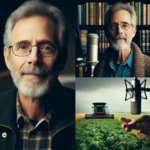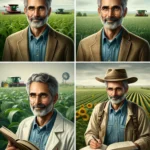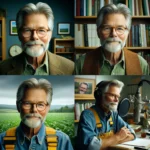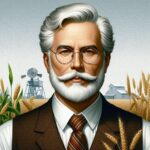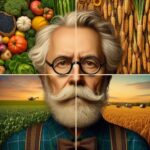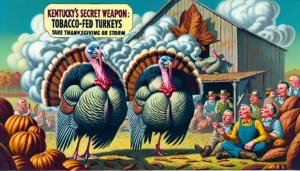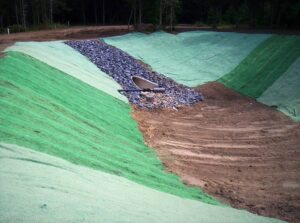Karl Hoffman: Agriculturalist, Professor, and Farm Journalist
Introduction
Karl Hoffman stands as a beacon of knowledge and innovation in the agricultural world. With a career that spans over four decades, Hoffman has made significant contributions as an agriculturalist, professor, and farm journalist. His expertise has not only shaped modern agricultural practices but also educated and inspired countless individuals in the field. This comprehensive biography delves into the life, career, and impact of Karl Hoffman, highlighting his achievements and ongoing legacy.
Early Life and Education
Born and raised in a small farming community in Iowa, Karl Hoffman’s fascination with agriculture began at a young age. Growing up on his family’s farm, he developed a deep appreciation for the land and the science behind crop and livestock management. His early experiences on the farm laid the foundation for his future career.
Hoffman pursued his passion for agriculture at Iowa State University, where he earned a Bachelor of Science in Agricultural Science. He excelled academically, and his commitment to research and practical applications of agricultural science earned him numerous accolades. Hoffman continued his education at Cornell University, where he obtained a Master’s degree in Agricultural Economics and a Ph.D. in Agronomy. His doctoral research focused on sustainable farming practices, a topic that would remain central to his career.
Career as an Agriculturalist
Upon completing his education, Karl Hoffman embarked on a career that would see him become one of the leading agriculturalists of his time. He began working with various agricultural organizations, conducting research on crop rotation, soil health, and pest management. Hoffman’s work was instrumental in developing new, sustainable farming techniques that increased yield while preserving the environment.
One of Hoffman’s notable contributions was his research on integrated pest management (IPM). His studies demonstrated how combining biological, cultural, and chemical practices could effectively manage pest populations with minimal environmental impact. This approach not only improved crop productivity but also reduced the reliance on harmful pesticides, benefiting both farmers and ecosystems.
Hoffman’s expertise was sought after by governments and international organizations. He served as an advisor to the United States Department of Agriculture (USDA) and contributed to several United Nations Food and Agriculture Organization (FAO) projects. His work took him across the globe, where he helped implement sustainable farming practices in developing countries, significantly improving food security and farmers’ livelihoods.
Academic Contributions
In addition to his practical work in the field, Karl Hoffman has had a distinguished academic career. He joined the faculty at Iowa State University, where he became a respected professor of Agronomy. Hoffman’s teaching style, characterized by his ability to blend theoretical knowledge with practical applications, resonated with students. His courses on sustainable agriculture, crop science, and agricultural economics were immensely popular, attracting students from diverse backgrounds.
Hoffman also contributed to academic literature, authoring numerous research papers and textbooks that have become standard references in agricultural education. His book, “Sustainable Agriculture: Principles and Practices,” is considered a seminal work in the field. It provides comprehensive insights into sustainable farming methods and has been adopted by universities worldwide.
Under Hoffman’s mentorship, many students have gone on to become prominent figures in agriculture, continuing his legacy of innovation and sustainability. He has supervised countless graduate theses and doctoral dissertations, fostering a new generation of agricultural scientists and practitioners.
Farm Journalism
Karl Hoffman’s passion for agriculture extends beyond academia and research. Recognizing the importance of communication and knowledge dissemination, he ventured into farm journalism. Hoffman became a regular contributor to several agricultural magazines and journals, where he shared his insights on farming practices, technological advancements, and policy issues.
His column, “Field Notes with Karl Hoffman,” became a staple for readers seeking reliable and practical advice on farming. Hoffman’s writing is known for its clarity, depth, and relevance, making complex agricultural concepts accessible to a broad audience. He covered topics ranging from soil health and crop diversification to the impact of climate change on agriculture.
In addition to print journalism, Hoffman embraced digital media, launching a blog and podcast series. His blog, “The Modern Farmer,” provides timely updates on agricultural trends, while his podcast features interviews with experts and discussions on pressing issues in agriculture. These platforms have expanded his reach, allowing him to engage with a global audience of farmers, researchers, and enthusiasts.
Awards and Recognition
Karl Hoffman’s contributions to agriculture have earned him numerous awards and recognitions. He has received the USDA’s Distinguished Service Award, the American Society of Agronomy’s Crop Science Award, and the World Food Prize for his work in improving global food security. Hoffman’s impact on sustainable farming practices was also acknowledged with an honorary doctorate from his alma mater, Iowa State University.
Legacy and Impact
Karl Hoffman’s career is a testament to the power of knowledge, innovation, and dedication. His work as an agriculturalist, professor, and farm journalist has not only advanced the field of agriculture but also inspired countless individuals to pursue sustainable and innovative farming practices. Hoffman’s legacy is reflected in the thriving farms, educated minds, and sustainable practices that continue to benefit from his contributions.
As he continues to share his expertise and passion for agriculture, Karl Hoffman remains a pivotal figure in the ongoing efforts to create a more sustainable and food-secure world. His life and career serve as an inspiration to current and future generations of agricultural professionals, ensuring that his impact will be felt for many years to come.










